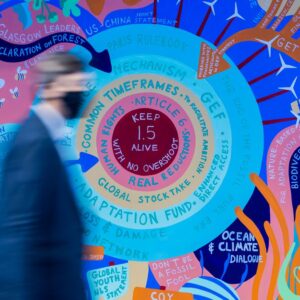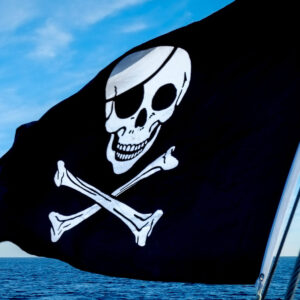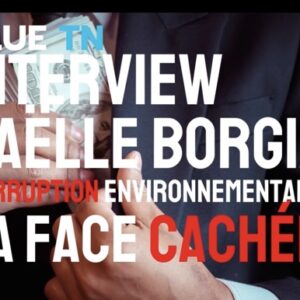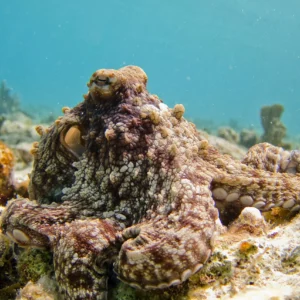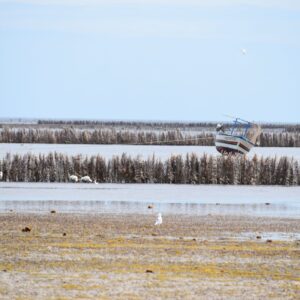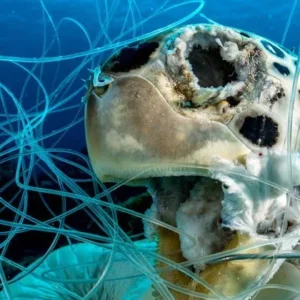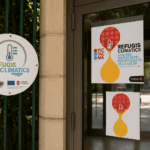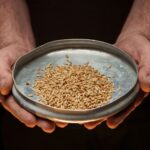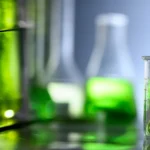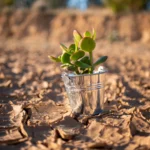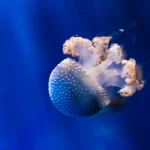Sea sponges, colloquially known as ” Nchef ” in the region, once embodied the very essence of Tunisian identity. Tunisia was one of the world’s pioneers in the export of this product, and Kerkennah stood out as one of the country’s leading producers. However, this maritime jewel, once so abundant, has now disappeared from these waters for a variety of reasons. Pollution, overexploitation, illegal fishing and the ravages of climate change have jointly depleted sponge stocks in Kerkennah, testifying to the fragility of this marine heritage that was once a national pride.
Sponges: Small organisms, great virtues
Considered the oldest animal lineage on our planet, sponges are benthic creatures that live attached to a variety of natural supports. Despite their structural simplicity, these organisms play a crucial role in the balance of marine ecosystems. Acting as filters, sponges can purify the equivalent of their own volume of water in a matter of seconds, contributing to purification by retaining fine organic particles.
Beyond their ecological impact, sponges have long been major players in the economy of many regions around the world. Used in the cosmetics and hygiene sectors, they offer an alternative to synthetic sponges, which are particularly polluting for the environment.
Their structural simplicity hides a crucial importance for the balance of the marine ecosystem. Acting as intrepid purifiers, they filter the equivalent of their own volume in a matter of seconds, purifying the water by retaining the finest organic particles. Their contribution to global economic dynamics is not limited to their ecological role. For centuries, they have been the jewels in the crown of the cosmetics and hygiene industry, offering an ecological alternative to synthetic sponges, which are destructive to our environment.
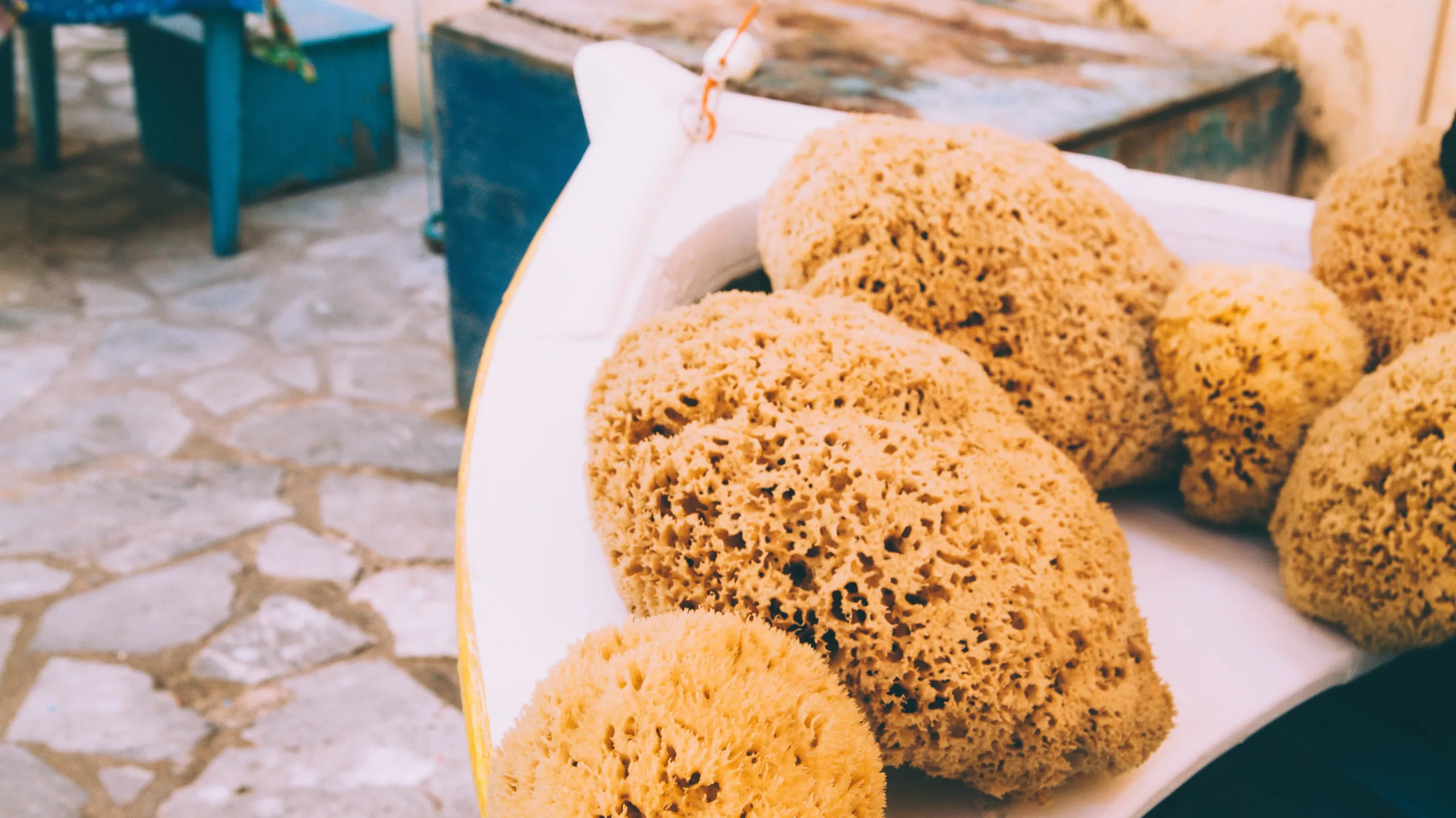
But that’s not all. Sea sponges are also proving to be pharmaceutical treasures. According to the work of Eva Ternon, a researcher in marine chemical ecology at Nice Sophia Antipolis University, three bioactive molecules extracted from sponges – Eribulin (Halaven), Cytarabine (Cytosar-U) and Vidarabine (Vira-A) – have been reproduced in vitro, tested and approved by the FDA. They are now successfully marketed as anticancer and antiviral agents.
And yet, despite their undeniable ecological, economic and therapeutic importance, several sponge species are now on the brink of extinction. A sad fact that particularly affects Tunisia, once a proud exporter of sponges. In the darkness of the seabed, sponges are much more than marine organisms; they have become fragile sentinels of the health of our oceans. A balance once preserved, but now threatened by a series of challenges to which it is imperative to respond.
The rise and fall of the Kerkennah sponge industry
An integral part ofTunisian heritage since 202 AD, the commercialization of sponges has carved out whole swathes of history, generating jobs and prosperity for fishing communities.

Tunisia, with 143 listed species, 5 of which are commercial, namely: Spongia agricina (elephant ear); Spongia officinalis (fine sponge); Spongi anitens; Spongia zimmoca (zimmocha) and Hippospongia communis (common sponge), has thrived in this crucial sector.
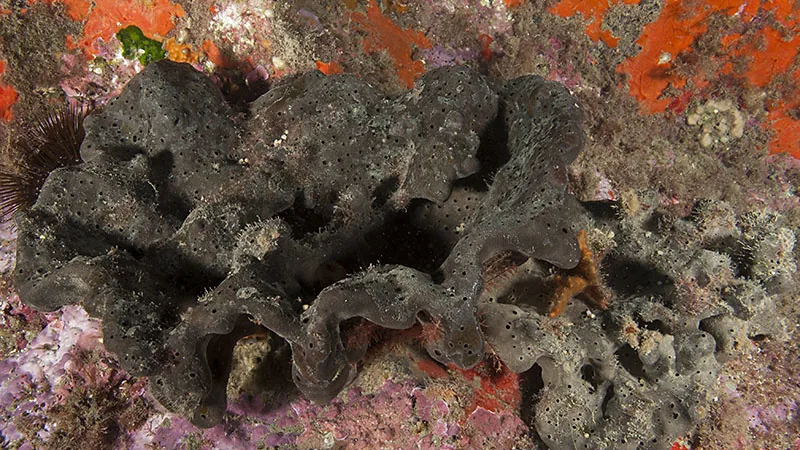
The Kerkennah Archipelago, once the flourishing epicenter of sponge production, found itself at the heart of a productive boom in 2005. According to DGPA data, it contributed 37% of a national production of 32,791 kg, valued at 2640 thousand dinars. A glorious past now tinged with bitterness, according to Neji Hdider, a seasoned artisanal fisherman from the Kraten region. Having inherited the trade from his father over 40 years ago. “The artisanal fisherman’s trade used to be a privileged one that enabled people to live in prosperity. Today, nothing is the same; the fisherman struggles to make a living.”

The Kerkennah Sea was once a treasure trove of living resources. Diving meant contemplating underwater beauty. The artisanal fishing trade was a blessing, synonymous with prosperity. Today, everything has changed, and the fisherman struggles to survive.
Neji Hdider
He continues nostalgically, “Sponge fishing was once a treasure. With almost 250 fishermen, Kerkennah’s revenues reached 30 billion dinars! Fishing took place between 2 and 6 meters, using the ancestral technique of the kannouta (small boat) where fishermen equipped with a gaff examined the bottom with a glass bucket to find the sponges. This technique requires the presence of two fishermen on board the boat: one maneuvering the kannouta and the other observing the bottom through the glass bucket to locate the sponges. Snorkeling is also available, but is more popular with youngsters. At the end of the collection, the sponges are washed and trampled to remove the liquid inside, and stored under cover to dry.

Each year, the sponge fishing ballet opens in October and stretches through the winter, intertwining harmoniously with the octopus fishing campaign. This clever timing was once intended to relieve the pressure on octopus. Today, in the absence of sponges, fishermen have turned to octopus fishing, an alternative that is itself fighting for survival. While it may temporarily meet the needs of fishermen, this transition is proving to be a tragedy for octopus stocks, whose uninterrupted decline evokes a worrying reality.
Red alert: Our sponges are threatened with extinction
The Kerkennah archipelago, once celebrated for its rich diversity of fish species, is now caught in the stranglehold of human activity and climatic upheaval. Pollution, overexploitation, illegal fishing and altered thermal regimes form a threatening web that endangers the marine ecosystem and local fishing activities.
Sponges, underwater treasures with a high commercial value, are not spared from this aggression and are showing worrying signs. Fethi Neloufi, Senior Fisheries and Aquaculture Engineer at the Groupement Interprofessionnel des Produits de la Pêche (GIPP), reveals that the decline in sponge stocks began four decades ago with the emergence of a devastating viral epizootic in Tunisia.
“In 1987, a viral epizootic struck the Tunisian coast, almost completely devastating the sponge stock. Attacking the skeleton, the virus wiped out the species, causing it to crumble”, explains F.Neloufi. Maïa FOURT points out that this epizootic recurred in 2017, causing significant lethality in sponges at depths of no more than 40 meters. In her opinion, this phenomenon is probably linked to a thermal disturbance in the mixed water layer between the sea surface and the thermocline*.
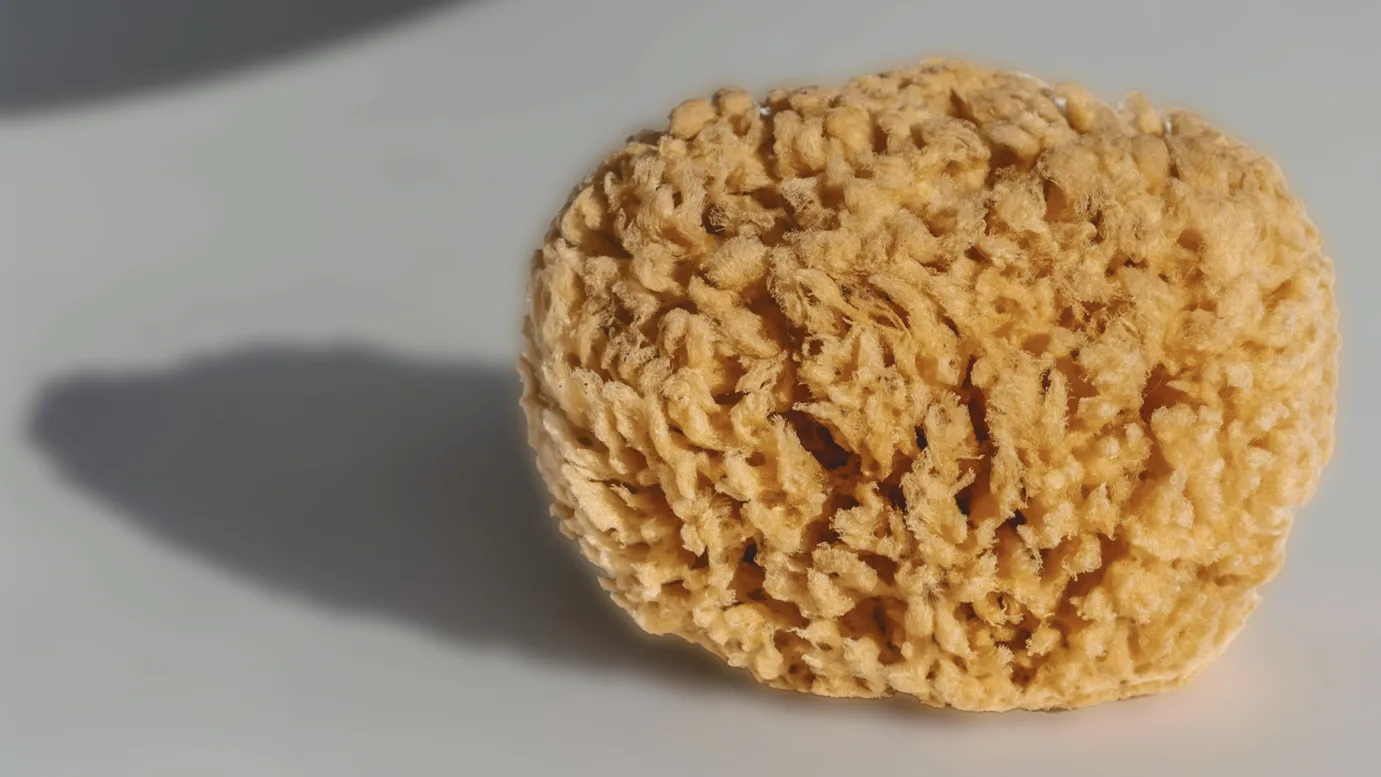
However, the impact of this disease on the sponge stock remains secondary to that of illegal fishing, notably through the use of the dreaded “Kiss“, a destructive trawl that scrapes the seabed, mutilating living resources and causing sometimes irreversible damage to marine habitats, such as Posidonia meadows, essential for supporting sponges.
Illegal fishing sweeps away the seabed, ripping up the posidonia, the sponges’ habitat, and threatening their very existence. Today, sponges are almost impossible to find at sea.
Neji Hdider
Fethi Neloufi also points out that overexploitation of sponges and failure to comply with the laws governing their fishing are among the main reasons for the drastic fall in their stock. Despite the ban, laid down in the decree of September 28, 1995, on collecting sponges smaller than 15 cm in diameter (the size at which they first reach sexual maturity), fishermen, often obsessed by immediate gain and unaware of the seriousness of the situation, continue to disregard these regulations, leading over the years to a decline, or even disappearance, of sponges in Kerkennah.
Marine pollution: The Grim Reaper of sponges
Kerkennah’s marine ecosystem is struggling, particularly in the face of the pernicious threat of chemical pollution from hydrocarbons and wastewater discharges, placing aquatic life in a critical situation.
According to the research of Mariem Cheffi, Doctor of Biological Sciences, the exploitation of oil reserves around the Kerkennah Islands is orchestrated by two companies: one specializing in oil extraction from offshore platforms, and the other dedicated to gas exploration. These activities are responsible for recurrent hydrocarbon leaks, generating worrying organic and mineral contamination. As Mariem Cheffi points out in her article, this contamination is truly harmful to the marine ecosystem. Added to this are frequent discharges of industrial, agricultural and sewage waste, leading to deterioration of the seabed and coastal ecosystems such as thePosidonia meadow.
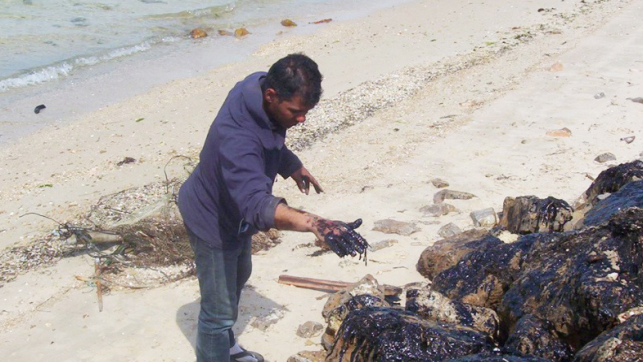
Sponges, as filter-feeders that feed on small organic particles in suspension, are among the most vulnerable to this marine pollution. Boulbeba Souissi, a young fisherman and snorkeler from the Kraten region, shares his alarming observation: “Sponges are very sensitive animals and are heavily impacted by marine pollution. In fact, they are the main indicators of marine water contamination, being the first organisms to succumb.”
I’ve been saying it since 2014, soon all we’ll have left is remorse, speaking of sponges.
Boulbeba Souissi
Souissi’s distress sounds like a cry of alarm about the imminent deterioration of this underwater treasure.
Spongiculture, a ray of hope for sponges?
Sponge farming, a veritable aquatic delight, is emerging as a beacon of hope for sponge preservation in Kerkennah. This practice, which involves cultivating sponges at sea by taking live sponge cuttings and attaching them to submerged ropes, has already proved successful in various locations, but its implementation in Kerkennah faces unique challenges.
In Zanzibar, Tanzania, a pioneering cooperative sea sponge farm run by Marine Cultures has risen to create new income streams, particularly for local women. This initiative has freed more than 12 women from precariousness, offering financial stability through the successful cultivation of sea sponges.
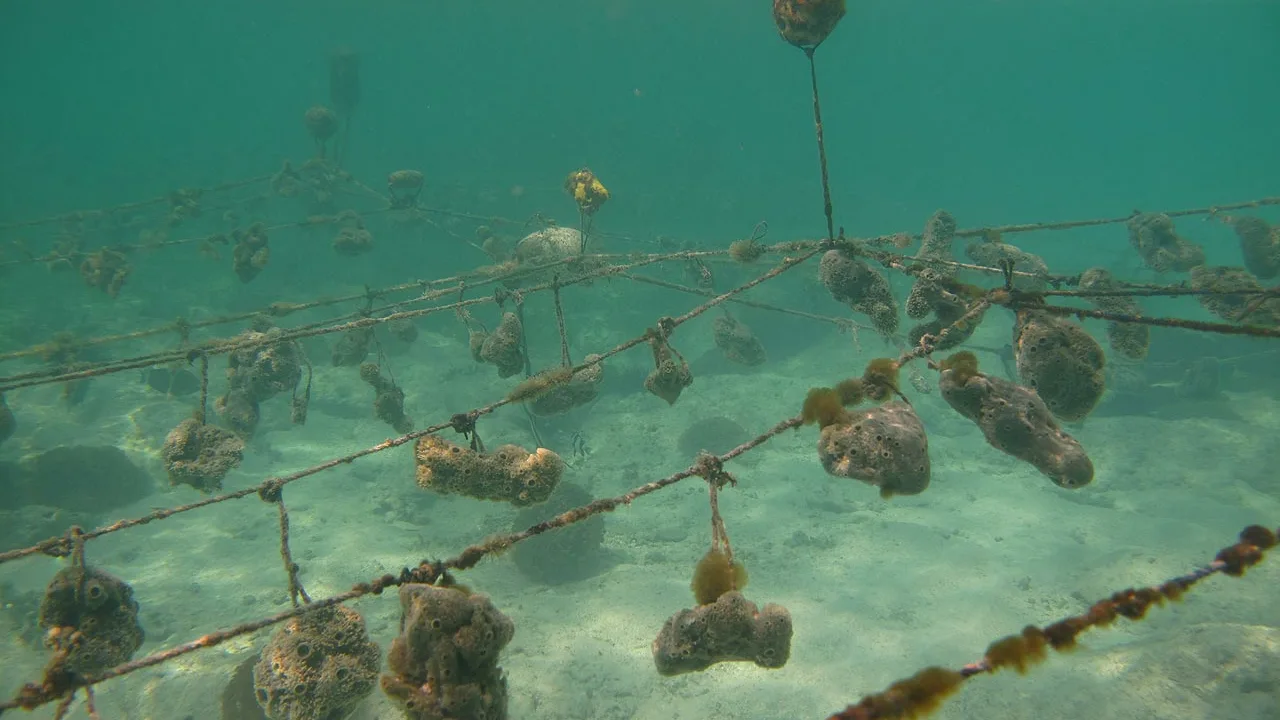
Fethi Neloufi, an expert in fisheries and aquaculture, revealed that sponge farming had already been successfully launched in Aghir and Zarzis. However, in Kerkennah, these hopes were unfortunately doomed to failure due to the destructive trawls that annihilate the ropes.
When asked about the viability of sponge farming in Kerkennah, Fethi Neloufi shared his informed view: “Sponge farming could be a very effective solution for restoring sponges in Kerkennah. However, it must be carried out according to the rules of the art on artificial reefs and in a place protected from trawls.” He added with conviction: “But first and foremost, it’s vital to raise awareness among the region’s fishermen of the importance of this technique and its benefits for restoring sponge stocks.” A glimmer of hope shimmers at the bottom of the ocean, linking sponge preservation to a conscious collaboration between nature and human endeavor.
- Thermocline: represents a thermal transition layer between warm surface waters and cold deep waters.
This article was developed in collaboration with the Earth Journalism Network Mediterranean Media Initiative.
Copyright © 2023 Blue Tunisia. All rights reserved
Sources:
- https://planet-vie.ens.fr/thematiques/ecologie/relations-interspecifiques/les-eponges-une-ecologie-complexe-au-fond-des-mers
- https://aquadocs.org/bitstream/handle/1834/1077/7.pdf?sequence=1
- http://www.ispab.agrinet.tn/docs/annuaire/stat2005.pdf
- https://www.imbe.fr/histoire-de-la-peche-des-eponges.html
- https://www.sciencedirect.com/science/article/abs/pii/S0025326X22010323
